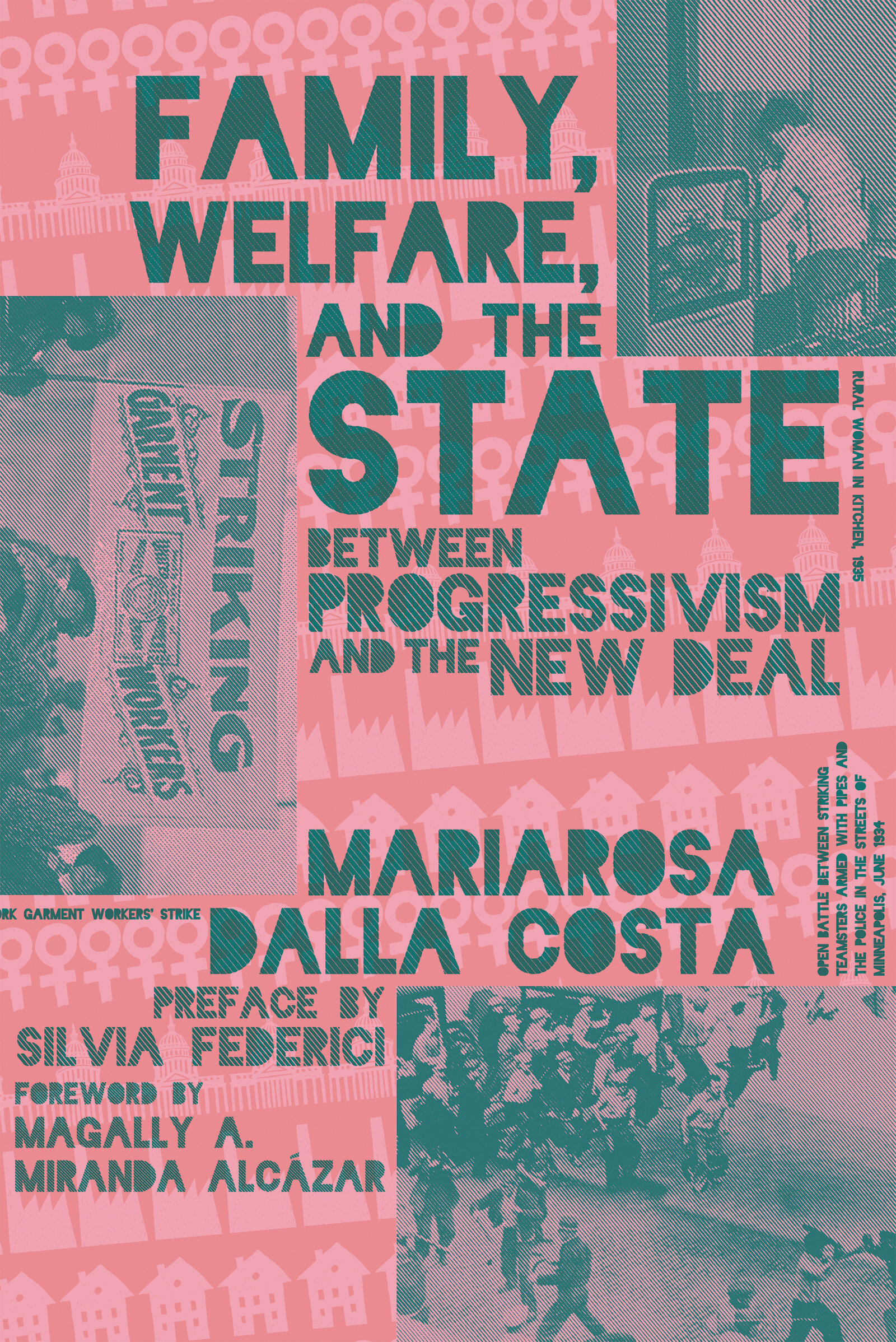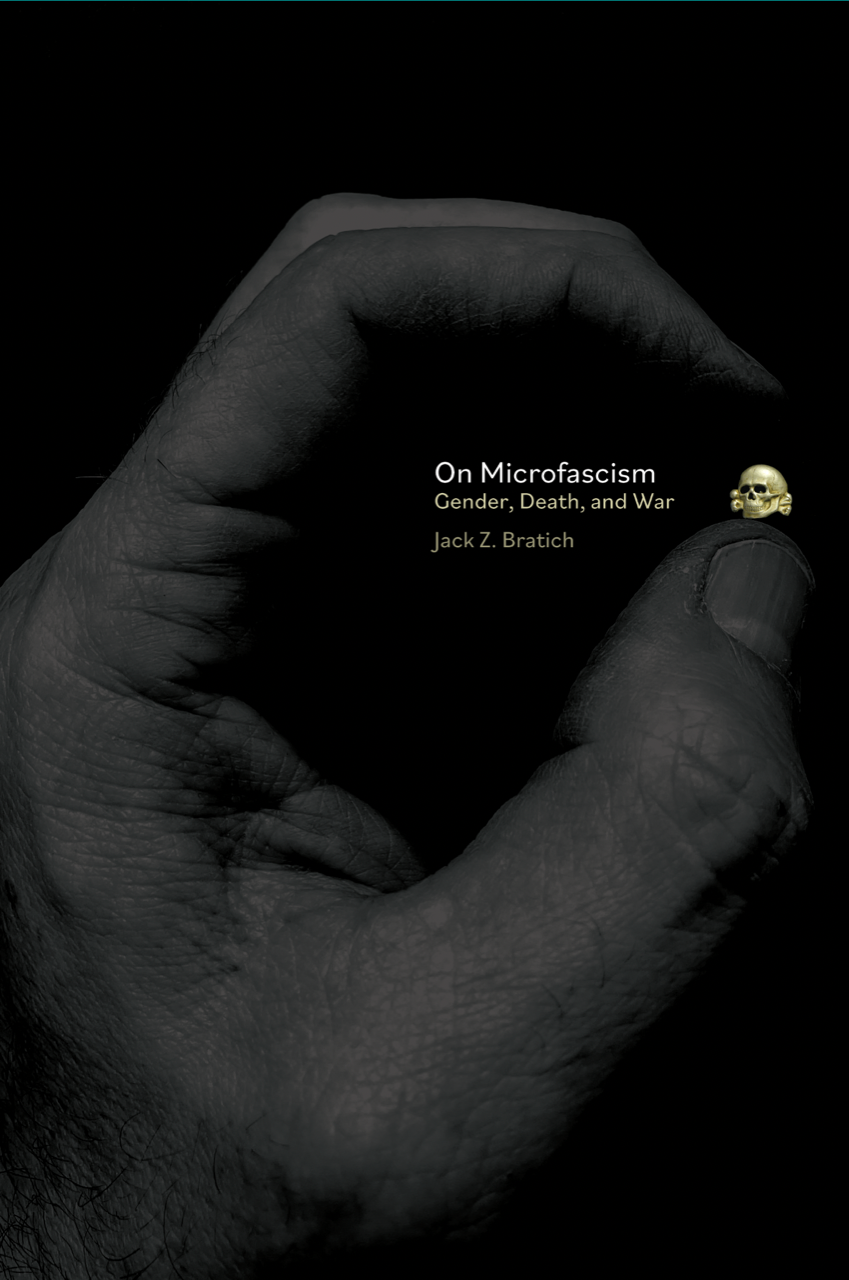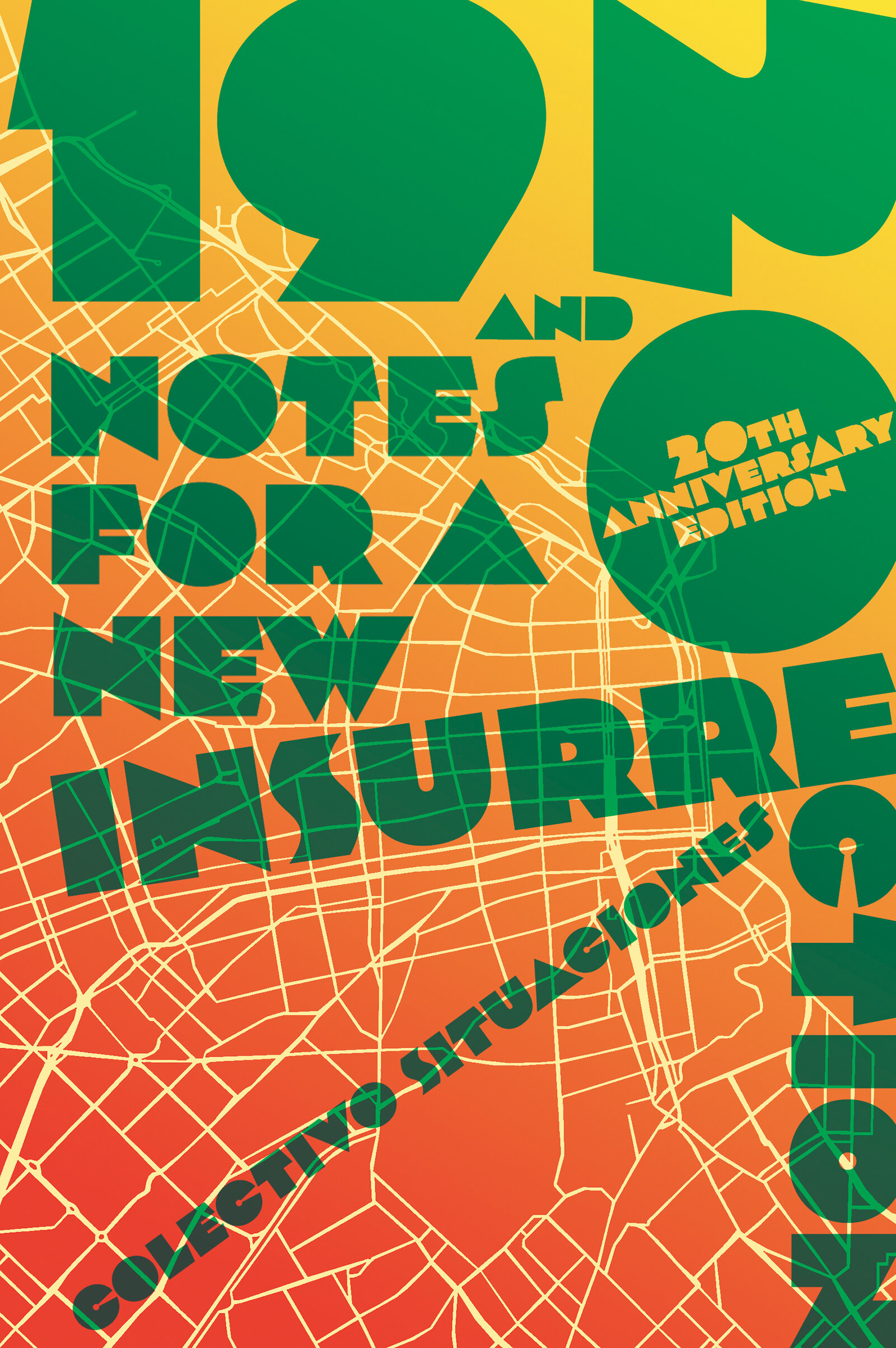Feminicide and Global Accumulation: Frontline Struggles to Resist the Violence of Patriarchy and capitalism
Edited by Otras Negras … y ¡Feministas!
Elba Mercedes Palacios Córdoba, María Campo, Martha Liliana Rivas Orobio, Natalia Andrea Ocoró Grajales, Betty Ruth Lozano Lerma
With Introductions by Silvia Federici, Susana Draper, and Liz Mason-Deese
Afterword by Sheila Gruner, Epilogue by Betty Ruth Lozano Lerma
The global struggles against racism, capitalism, and patriarchy revealed by the Black and Indigenous women and trans communities leading its resistance.
Feminicide and Global Accumulation brings us to the frontlines of an international movement of Black, Indigenous, popular, and mestiza women’s organizations fighting against violence—interpersonal, state sanctioned, and economic—that is both endemic to the global economy and the contemporary devalued status of racialized women, trans, and gender non-conforming communities in the Global South.
These struggles against racism, capitalism, and patriarchy show how crucially linked the land, water, and other resource extraction projects that crisscross the planet are to devaluing labor and nature and how central Black and Indigenous women and trans leadership is to its resistance.
The book is based on the first ever International Forum on Feminicide among ethnicized and racialized groups—which brought together activists and researchers from Colombia, Guatemala, Italy, Brazil, Iran, Guinea Bissau, Bolivia, Canada, the U.S., Ecuador, Spain, Mexico, among other countries in the world to represent different social movements and share concrete stories, memories, experiences and knowledge of their struggles against racism, capitalism and patriarchy.
Feminicide and Global Accumulation reflects, in a collective fabric, the communitarian and enraged struggles of women, trans, and gender non-conforming communities who commit themselves to the transformation of their communities by directly challenging the murder and assassination of women and violence in all its forms.
PRODUCT DETAILS
Edited by: Otras Negras … y ¡Feministas! (Elba Mercedes Palacios Córdoba, María Campo, Martha Liliana Rivas Orobio, Natalia Andrea Ocoró Grajales, Betty Ruth Lozano Lerma)
Publisher: Common Notions
ISBN: 9781942173441 (print)
ISBN: 9781942173540 (eBook)
Published: October 2021
Format: Paperback
Size: 6 x 9
Page count: 256
Subjects: Feminism/Latin America/Social Movements
About the Editors
Otras Negras . . . y ¡Feministas! is a Black Afrodescendent feminist women’s collective from Cali, Colombia. Members include Elba Mercedes Palacios Córdoba, María Campo, Martha Liliana Rivas Orobio, Natalia Andrea Ocoró Grajales, and Betty Ruth Lozano Lerma.
Translation by Veronica Carchedi, Liz Mason-Deese, Susana Draper, Silvia Federici, Laura Gottesdiener, and Sheila Gruner
Advance Praise
"Theorizing feminicide as the key epistemic violence at the heart of patriarchal, colonial, and capitalist relations of rule, this powerful text documents Black, Brown, and Indigenous trans and cis women’s ongoing resistance and insurgent dreams of bodily integrity and freedom. Weaving together memories, poetry, stories, analysis, art, and activist praxis, Feminicide and Global Accumulation charts a new and irresistible future for anticapitalist feminist struggle. A book that belongs on the bookshelves of all progressive, left, decolonial scholar-activists.”—Chandra Talpade Mohanty, author of Feminism Without Borders: Decolonizing Theory, Practicing Solidarity
“Feminicide and Global Accumulation tells stories of women reclaiming their histories, their dreams, their lives, and their bodies. It is a view from the ground up of the limitless greed of global corporations who want the last farm, the last seed, and the last mineral. Most importantly, it shows how violence against the Earth and violence against women are interconnected, and how feminicide and ecocide are intrinsic to the structures of global accumulation. Transforming the pain of feminicide into a fight for justice, women are showing how we can create new economies from the ground up, putting people and planet at the center to create buen vivir, the good life for all.”—Vandana Shiva, author of Staying Alive: Women, Ecology and Development and Earth Democracy: Justice, Sustainability, and Peace
"Drawing on concrete experiences and processes, Feminicide and Global Accumulation explains why feminicide is a political category. It shows why social movements are the ones that have made feminicide into a term for naming patriarchal violence in relation to the capitalist and colonial system as a machine of exploitation and cruelty over certain bodies and territories; why struggles have installed the term in the media and in legal classifications at the same time as they use it to denounce patriarchal justice and counter-insurgent strategies. Speaking of feminicide and transfeminicide in relation to global processes of accumulation, as Feminicide and Global Accumulation proposes, makes it possible both to grieve and to refuse its normalization, to create a systematic account of how violence explodes and extracts collective wealth, as well as to connect sexual violence to histories of conquest and genocide.
Feminicide and Global Accumulation arises from a collective encounter in Colombia in 2016 that has been vital for conceptualizing and sharing experiences from voices across Abya Yala, of Black, Indigenous, Afro-descendant and Afro-Indigenous women, and non-heteronormative bodies. Thus it is a book that is heard and written in many tongues. It is theory produced in the thickness of a poem, concepts woven into conversation, lines of argument that echo inherited histories, philosophies that carry memories. The effort of its translation and publication in English does justice to the task of introducing a vocabulary that emerges from the struggles of body-territories in their untiring strategies of re-existence.”—Verónica Gago, author of Feminist International: How to Change Everything
“Feminicide and Global Accumulation is a timely and necessary book on one of the most urgent issues facing trans and cis women globally. Centering the voices of Black and Indigenous women, this collection presents rare and much needed insight into the ways that racial capitalism and heterosexism exacerbate the politics of violence against women transnationally. From Colombia to Guinea-Bissau, these reflections dialogically, poetically and passionately demonstrate why Black and Indigenous women matter and why we must do everything in our power to stop racialized gender violence now.”—Christen A. Smith, author of Afro-Paradise: Blackness, Violence and Performance in Brazil
"Feminicide and Global Accumulation is a searing, unflinching indictment and analysis of gender-based violence and its embeddedness in extant structures of colonialism, modern patriarchy, racism, and capital accumulation. In their own riveting words and voices, Black, Afro-descendant, trans, and Indigenous women, activists, and researchers from across the Americas and the Global South offer stories and theories of the living experiences and memories of the racist, feminicidal violence they and their communities have endured and resisted, and never forgotten, despite the imposed silence of dominant histories. Through them we see the monstrous and intimate scales of the punitive powers women face. But we also see the enormous powers women themselves wield—powers of rebellion, resistance, and re-existence—which are the radical capacities for transformation we can put our hopes in.
Harrowing and heartening, moving, humbling, and inspiriting, these are powerful and empowering calls for collective resistance and joy, and renewed life-making against the pedagogies of cruelty directed against the truth of women’s rebellion. This book is more than a glimpse of what it will take to remake the world. It shows us that those who now defend life, land, culture, and community are who will lead us into a different future."—Neferti X. M. Tadiar, author of Things Fall Away: Philippine Historical Experience and the Makings of Globalization
“Feminicide and Global Accumulation is a book of the heart and mind, of spirit and memory, and of truth and resistance. By amplifying the voices of Black, Indigenous and women of color living on the frontlines of colonialism and imperialism, this book offers an alarming exposition of the horrors and terrain of contemporary racialized, capitalist accumulation and dispossession—who it targets, under what historical conditions, and the staggering and multiple forms of patriarchal violence necessary for its reproduction. The narratives move through past, present, and future—drawing on ancestral wisdom of place, speaking to the everyday political interventions of feminist freedom fighters in the here and now, and ultimately shaping future feminist resistors rising up from the earth and demanding change. There is no hiding from the haunting accounts of colonial, capitalist violence courageously shared in these pages, or the questions about international solidarity that float to the surface as you read. The transformative power, analytic precision, and deep and uncompromising indictment of our current world captured in the book’s pages—and showcased in such painful and beautiful ways— is what we desperately need to think with, to teach, to understand, and to mobilize for collective liberation across the globe. Reading it is like standing on the precipice of change.”—Jaskiran Dhillon, author of Prairie Rising: Indigenous Youth, Decolonization and the Politics of Intervention and Notes on Becoming a Comrade
About the Contributors
Helen Álvarez is a member of the Bolivian-based anarchofeminist collective Mujeres Creando and journalist for Radio Deseo, which brings together voices from different social organizations, different musical genres, and different fields of knowledge.
Clemencia Fory Banguero is a Black environmental feminist activist from northern Cauca and a member of the Association of Community Councils of the North of Cauca [Asociación de Consejos Comunitarios del Norte del Cauca, ACONC].
María Mercedes Campo is a researcher and activist with Otras Negras . . . y ¡Feministas! and Colectivo Sentipensar Afrodiaspórico.
Alejandra Cárdenas is Director of Global Legal Strategies at the Center for Reproductive Rights. She was previously Regional Legal Director of Women’s Link Worldwide, working on issues of reproductive rights, transitional justice, and sex trafficking.
Elba Mercedes Palacios Córdoba is a member of Otras Negras . . . y ¡Feministas! and Colectivo Sentipensar Afrodiaspórico.
Susan Chiblow is Anishinaabe kwe from the Great Lakes territory and organizer of the Indigenous Women’s Anti-Violence Task Force of Baawaating (Sault Ste. Marie, Ontario).
Aura Estela Cumes is a Maya Kaqchikel (Guatemala) philosopher, writer, educator, and activist. She is cofounder of the Community of Mayan Studies (CEM) and member of the Latina American Group on Feminist Theory and Praxis (GLEFAS).
Vivian Jiménez Estrada is Maya Achi (Guatemala) currently living in Baawaating (Sault Ste. Marie, Ontario). She is Associate Professor in Sociology at Algoma University, where she teaches critical sociology from Indigenous perspectives.
Silvia Federici is a critically acclaimed feminist, Marxist theorist, and author of Caliban and the Witch, Revolution at Point Zero, and Witches, Witch-Hunting, and Women, among others. A feminist activist for over sixty years, Federici was one of the main participants in the international debates about the condition of and remuneration for domestic labor. During the eighties, she worked as a professor in Nigeria, where she witnessed a new wave of attacks against the commons. Federici is professor emeritus and Teaching Fellow in Social Sciences at Hofstra University.
Patrícia Godinho Gomes is from Guinea-Bissau and holds a Ph.D. in History and Institutions of Modern and Contemporary Africa from the University of Cagliari, in Italy. She has researched and taught Ethnic and African Studies and is currently an Associate Researcher at the National Institute of Studies and Research in Guinea-Bissau. She is also member of the Executive Committee of the Council for the Development of Research in Social Sciences in Africa (CODESRIA) and a member of the African Borderland Network (ABORNE).
Sheila Gruner is a scholar-activist who worked closely with the Forum on Feminicides organizational committee and continues to work to open spaces for antiracist, decolonial, antipatriarchal study and practice. She is principal editor of Blurring/Drawing the Landscape/Country: Contributions to Peace with Afrodescendent and Indigenous Peoples: Territory, Autonomy and Good Life (2016). Dr. Gruner is also faculty member at Algoma University and visiting professor la Universidad Javeriana (Bogotá).
Katherine Loboa is a Black feminist activist from northern Cauca.
Betty Ruth Lozano Lerma is a Black feminist and decolonial scholar and activist and member of Otras Negras . . . y ¡Feministas! She is author of Aportes a un feminismo negro decolonial [Contributions to a Decolonial Black Feminism] and Orden racial y teoría critica contemporánea: Un acercamiento teórico-critico al proceso de lucha contra el racismo en Colombia [Racial Order and Contemporary Critical Theory: A Theoretical-Critical Approach to the Fight against Racism in Colombia].
Valentina García Marín is an associate of the Social Work Program, Universidad del Valle, Cali, Colombia.
Shahrzad Mojab is an activist and academic who has spent four decades in and with women’s struggles in the Middle East. Her books include Women of Kurdistan: A Historical and Bibliographical Study (coauthored with Amir Hassanpour, 2021); Revolutionary Learning: Marxism, Feminism and Knowledge (coauthored with Sara Carpenter, 2017); Marxism and Feminism (editor, 2015); and Educating from Marx: Race, Gender and Learning (coedited with Sara Carpenter, 2012), among others.
Vicenta Moreno is the General Director of Chontaduro Cultural House and holds a degree in Artistic Education and masters’ degree in Popular Education and Community Development from Universidad del Valle.
Ofir Muñoz is a long-term member of Chontaduro Cultural House and holds a degree in Popular Education from Universidad del Valle. She is currently the Undersecretary of Gender Equity for the Mayor’s Office of Cali.
Natalia Ocoró is a member of Otras Negras . . . y ¡Feministas! and Colectivo Sentipensar Afrodiaspórico. She holds degrees in Political Studies and Conflict Resolution from the Universidad del Valle.
Alejandra Rangel Oliveros is an associate of the Social Work Program, Universidad del Valle, Cali, Colombia.
Martha Liliana Rivas Orobio is a member of Otras Negras . . . y ¡Feministas!
Danny Ramirez is an activist with the Conferencia Nacional de Organizaciones Afrocolombianas (CNOA).
Isaura Sauce is a representative of the Asociación de Cabildos Indígenas de Norte del Cauca (ACIN).
Blanca Astrid Secué is a representative of the Consejo Regional Indígena del Cauca (CRIC).
Rita Laura Segato is a professor of Anthropology at the University of Brasília, where she holds the UNESCO Chair of Anthropology and Bioethics. She carries out research on behalf of Brazil’s National Council of Scientific and Technological Investigations and has taught in the Postgraduate Programme of Bioethics and Human Rights. Segato is the author of La escritura en el cuerpo de las mujeres asesinadas en Ciudad Juárez [The Writing on the Body of Murdered Women in Ciudad Juárez]; La nación y sus otros: raza, etnicidad y diversidad religiosa en tiempos de políticas de la identidad [The Nation and Its Others: Race, Ethnicity, and Religious Diversity in Times of Identity Politics]; and Las estructuras elementales de la violencia [The Elemental Structures of Violence].
Danelly Estupiñán Valencia is a human rights activist and teaches at Universidad del Pacífico, Buenaventura, Colombia.
FROM THE BOOK
An international and historical perspective on feminicide and global accumulation
Silvia Federici
From the spread of new forms of witch-hunting and the worldwide escalation in the number of women murdered daily, there is mounting evidence of what some feminists have called “a low-intensity war against women.” This chapter starts with the question: What are the motivations and logic behind this phenomenon? I try to answer this question by placing the specific forms of violence in a historical context and examining the impact of capitalist development, past and present, in women’s lives and gender relations. In this context, I also explore the relation between different forms of violence—familial, extra-domestic, and institutional—and the strategies for resistance that women around the world are creating to put a stop to it.
Since the beginning of the feminist movement, violence against women has been a key issue in feminist literature and organization, inspiring the formation of the first International Tribunal on Crimes against Women, held in Brussels in March 1976. Since then, feminist antiviolence initiatives have multiplied, as have laws passed by governments following the UN World Conferences on Women. But, far from diminishing, violence against women has increased in every part of the world, to the point where feminists now describe it as “feminicide.” Not only has the violence represented by the number of women killed and abused continued to increase, but its character has also changed. It is increasingly more public, more brutal, and it frequently takes forms that are typical of times of war.
What are the causes of this phenomenon and what does it tell us about transformations that are occurring in the global economy and women’s social position? Answers to these questions have varied, but it is clear that the root causes of this escalation are found in the new forms of capital accumulation, which involve broad processes of land dispossession, the destruction of communitarian relations, and an intensification in the exploitation of natural resources and labor. What still needs to be clarified, however, are the concrete ways in which this violence is a consequence and/or instrument of the advance of capitalist relations. In this chapter, I address the question both by providing a historical perspective, and by discussing the relation between domestic and public violence and policies at the institutional level that have been adopted to discipline women. My goal is to demonstrate that while this new wave of violence adopts different forms, its common denominator is the devaluation of women’s lives and labor promoted by globalization. In other words, the new violence against women is rooted in structural trends that are constitutive of capitalist development and state power in all times. This means that the construction of alternatives to capitalism must be an essential part of the struggle against this violence against women, in order to eradicate its causes.
MORE RESOURCES FROM THE FORUM
Full Notes from Working Tables Among Women
Click here for the full notes from Working Tables Among Women. [Coming soon.]
Gallery
•“We wanted to give you that light, that other voice of hope, and that’s why we made this mandala that represents the energy containing all of us. It is like energy from the universe that tells us those who have passed are still here with us, transforming, conspiring. Also, because we know that for women and Black culture, the dead do not disappear; they stay with us. They stay here transforming, caring, doing those other things that one does not think are there; they are those hands, those dreams, that continue to be forged with all of us. Thus, this mandala is offered for all the women who are no longer here, but also for all of us who keep walking, keep transforming, fighting, and seeing that another way of living is possible” (Iris Moreno, Chontaduro House)
•“We start with a feeling of unity knowing that we are not alone, that we have brought together over three hundred women from all the continents to meet and get to know each other, to mutually strengthen ourselves to scream, to cry, and to laugh together, and to promise ourselves that we will not let them burn us again” (Vicenta Moreno, Chontaduro).
•“One of the main problems illegal mining brings to our territory is harm to women’s health. . . . We are the ones who give birth. And it brings mercury to our rivers which are life. Given this, we can no longer carry out the daily activities that were done in the rivers because our children will be born with diseases and genetic deformities. The crops can no longer be irrigated with these waters, the food sources will be contaminated as well. Regarding the question, what are the pedagogies of cruelty? Beyond the mining, there are also armed groups that come to our territory, hanging threatening pamphlets announcing they are there. . . This generates intimidation and terror in the communities. For me, these are the pedagogies of cruelty that are carried out against the population. There are different forms of making women die. One does not only die physically, but also culturally, and as I said, in one’s very being as a person. They kill our beings as women.”
•“We are demanding another position, another place, a place that has to do with our ways of life and our autonomy, that that is what we do not have …”
•“One form of re-existence, of finding ways to get by, is another form of economy. Because women, in our spaces, support one another, talk to one another, create strategies for how to do things, how to make it; how to defend ourselves from the world, but also how to become better organized” (Ofir Muñoz and Vicenta Moreno).













